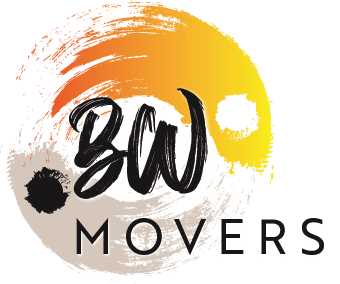The moving industry in South Africa demands a unique set of capabilities to navigate the dynamic challenges that come with relocating goods and valuables. To thrive as a mover, more is required than just brute strength. It takes an assortment of critical moving skills, from robust organization skills and proactive problem-solving abilities to a steadfast commitment to physical fitness. These competencies are the foundation for efficient time management strategies and superior customer service, ensuring that clients’ moving experiences are both smooth and satisfying. Success in this field is also heavily reliant on solid teamwork and clear communication skills, as these facilitate effective collaboration among team members and with clients, cementing the reputation of the mover as both proficient and professional.
Key Takeaways
- Comprehensive organization skills enable movers to manage logistics and inventory efficiently.
- Problem-solving is pivotal for overcoming unexpected challenges during the moving process.
- Maintaining peak physical fitness is crucial for the demanding nature of moving tasks.
- Effective time management determines the mover’s ability to deliver prompt services.
- Customer service excellence is key to establishing trust and ensuring repeat business.
- Teamwork propels smooth operations and sharing the workload during moves.
- Clear communication skills are necessary for successful client and team interactions.
The Role of Physical Fitness in Moving Careers
Forging a successful path in moving careers entails more than mere brawn; it requires a synergy of robust physical fitness, expertise in safe lifting techniques, and a commitment to enhancing moving skills. This combination not only ensures the mover can perform tasks with efficiency but also undergirds the overarching goal of longevity and safety in the profession.
Understanding the Importance of Strength and Stamina
Strength and stamina serve as the foundation for movers who tackle the physically demanding challenges of their workday. The capacity to manage heavy loads with ease while navigating the intricacies of moving spaces is a direct reflection of a mover’s physical fitness. Stamina, on the other hand, sustains that performance over longer periods, which is integral during extensive moving projects.
Techniques for Safe Lifting and Moving
The mastery and application of safe lifting techniques are critical to prevent accidents and injuries on the job. Through proper posture, movers can distribute weight evenly, avoiding undue strain. These practices not only fortify the mover’s safety but also preserve the integrity of the belongings they are tasked with transporting.
- Keep a wide base of support: To ensure balance and stability during a lift.
- Lift with the legs: Engage the strong muscles of the legs rather than relying on the back.
- Maintain straight posture: Avert bending at the waist, which can lead to back injuries.
- Use grip and lifting aids: Gloves and straps can enhance grip and reduce hand fatigue.
Incorporating Fitness Routines to Enhance Moving Skills
In the pursuit of professional excellence, movers are encouraged to integrate fitness regimens that are purpose-built for the demands of their role. Such routines sharpen existing skills, introduce new capabilities, and expand the mover’s proficiency. As a result, movers find themselves better prepared for the dynamic scenarios they encounter, embodying resilience that translates to career advancement.
The philosophy of continuous improvement in moving careers is marked by the dedication to elevate one’s physical fitness and proficiency in safe lifting techniques. This commitment not only serves individual movers but speaks to the quality standards of the industry as a whole, promoting a culture of excellence and safety.
Mastering Customer Service and Teamwork as a Professional Mover
In the dynamic world of relocation services, excelling as a professional mover in South Africa demands more than just physical strength; it is equally about fostering exceptional customer service and teamwork. Movers renowned for their professionalism are those who prioritize the client experience and understand the profound impact that effective communication and collaboration have on their trade.
Developing Effective Communication for Customer Satisfaction
To guarantee customer satisfaction, a professional mover must become adept in developing effective communication. Practiced communication skills include the ability to listen actively to clients’ needs, articulate procedures simply and cogently, and address any issues with prompt and effective resolutions. Such interpersonal expertise is not just beneficial—it’s imperative to cultivate lasting customer relationships and ensuring repeat business in the competitive South African market.
Fostering Team Coordination and Cooperation
A successful move is often the result of meticulous coordination and unwavering cooperation among team members. By fostering team cooperation, professional movers create a cohesive unit capable of overcoming the complexities that come with moving. Whether it’s executing a strategic plan for a large-scale move or navigating the intricacies of handling delicate items, teamwork lies at the heart of efficiency and client trust—a vital component to securing a moving company’s reputation and its future business endeavors in South Africa.
FAQ
What are the key skills needed to become a successful mover in South Africa?
To excel as a professional mover in South Africa, it is essential to possess a blend of moving skills, including strong organization skills, problem-solving abilities, physical fitness, time management, customer service proficiency, teamwork capabilities, and communication skills. These skills ensure efficiency, safety, and a high level of customer satisfaction. Furthermore, it is important for professional movers to stay up-to-date with the latest safety regulations and best practices in the industry. In addition, they should also be knowledgeable about proper packing and handling techniques to minimize the risk of damage to the client’s belongings. Lastly, tips for preparing for movers include decluttering and organizing items before the moving day, communicating clearly with the moving company about any specific instructions or requirements, and ensuring that all necessary paperwork and documentation are in order.
Why is physical fitness so important in the moving industry?
Physical fitness is crucial in the moving industry as it provides the strength and stamina needed to safely and effectively move heavy objects. Being physically fit helps prevent injuries and ensures that movers can handle the demands of their job, which often involves lifting, carrying, and maneuvering large and awkward items.
What safe lifting techniques should movers be familiar with?
Movers should be well-versed in safe lifting techniques to protect themselves and the items they handle from damage. This includes learning proper body mechanics, such as bending at the hips and knees, keeping the back straight, and lifting with leg muscles rather than the back. Using equipment like dollies and harnesses whenever appropriate is also crucial for safety.
How can incorporating fitness routines enhance a mover’s skills?
Incorporating fitness routines specifically designed for the demands of moving jobs can enhance a mover’s strength, endurance, and agility. These routines can improve a mover’s ability to perform job-related tasks more efficiently and with less fatigue, ultimately elevating service quality and professional capacity in their moving career.
What makes customer service excellence vital for movers?
Customer service excellence is essential for movers because it directly impacts customer satisfaction and the reputation of the moving service. Excellent customer service includes clear communication, responsiveness to customer needs, and the ability to anticipate and solve problems. It contributes to repeat business and positive referrals, which are key to a mover’s success.
How can movers develop effective communication for better customer satisfaction?
Movers can develop effective communication by actively listening to clients, clearly explaining the moving process, and being responsive to questions and concerns. Good communication helps to build trust with customers, ensures a transparent moving experience, and leads to greater customer satisfaction.
Why is fostering team coordination and cooperation important for movers?
Fostering team coordination and cooperation is critical because moving is typically a team effort that requires synchronization and smooth cooperation among team members. Effective teamwork ensures tasks are completed efficiently, risks of accidents or damages are minimized, and contributes to the overall positive experience for the customer and success of the move.





